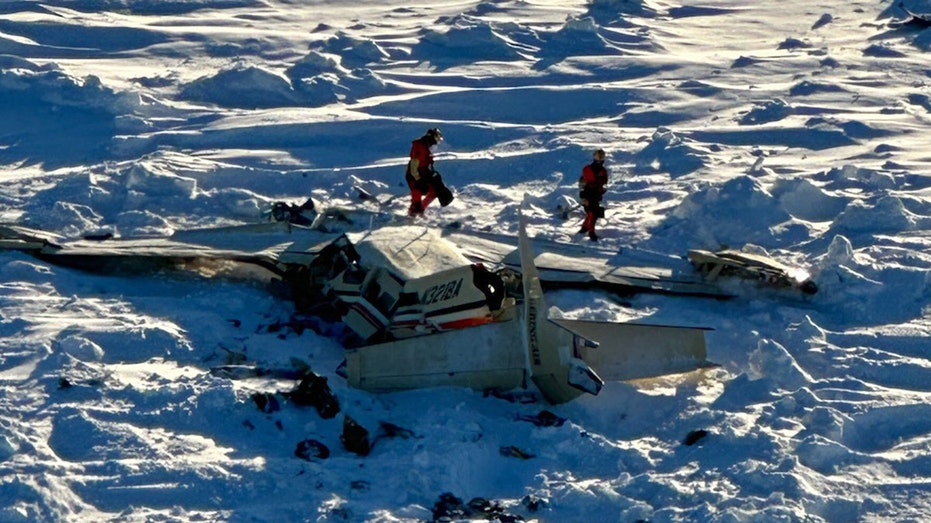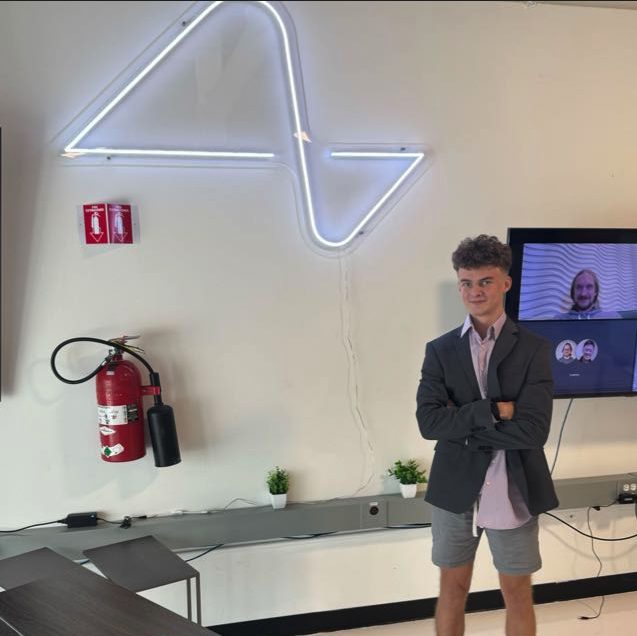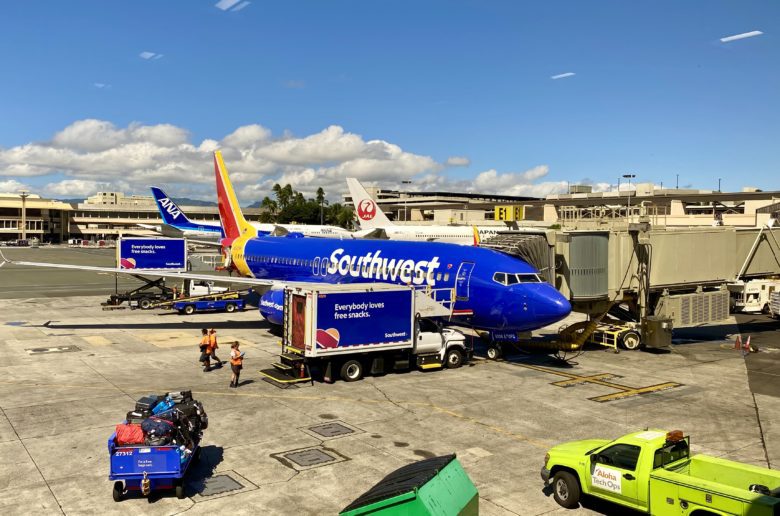How Trump’s Foreign-Aid Freeze Is ‘Shaking the Whole System’
"These are real people, real lives, hanging in the balance"


James Akot has three goats. He shares them with his wife, his mother, three younger siblings, and two of his cousin’s children, in a household in Northern Bahr el Ghazal in South Sudan. The crops Akot’s family planted were washed away in the floods last year, the fourth and worst flood in the region in four consecutive years. [time-brightcove not-tgx=”true”]
This month, food deliveries were due to arrive to his region to tide families over until the next crop. But in late January, Akot and his neighbors heard that these deliveries would not be coming. A volunteer community organizer, Akot is reluctant to talk about his woes; many in his region are so much worse off. Four of the local health centers have closed. Cholera cases are ticking up. Too many children are malnourished. There’s a local refugee camp, Wedwill, overflowing with families who have fled war from just across the border in Sudan.
Not all of this is because in early February, USAID funds were frozen for all but the most emergency and lifesaving missions; the World Food Programme had already announced it would need $404 million to serve the region before the 90-day pause imposed by the U.S. government on foreign aid. But the stoppage is making many dire situations into desperate ones. “This is not about one organization,” says Marta Valdes Garcia, humanitarian director of Oxfam International. “It’s a full humanitarian system that is working, and, under a specific coordination, aims to deliver humanitarian assistance for millions of people around the globe. The stop-work order is shaking the whole system.”
I ask Akot, 34, what he will do now. That’s when he mentions the goats. “I have to sell one goat to get 10 kg [22 lbs.] of flour,” he says. “We can eat it maybe for five to six days, because we are extended family. Then I sell another one. So for these 15 days, we are going to sell three goats. We don’t know what will happen from there.” He laughs, nervously, as he faces the enormity of it.
Read More: How Christian Groups Are Responding to Trump’s Foreign-Aid Freeze
TIME spoke to humanitarian workers—many of whom asked not to be named for fear of reprisals to their employers—about the implications of the suspension. Schools for fourth- to sixth-grade girls are being closed in Afghanistan. Families are returning to destroyed neighborhoods in Gaza with no access to clean water, shelter, or provisions. Funding for teachers and supplies in Uganda has dried up. Tons of seeds are currently sitting in a warehouse in Haiti instead of being distributed to farmers. Maternal health and family-planning clinics in Malawi are shuttered. In Bangladesh, food assistance for refugees will be cut by half in March and run out entirely in April.
“As bad as all these are, the things that you’re not able to see right now are going to be the really devastating things,” says a representative from an aid organization that works on nutrition in the Horn of Africa. “We’re prioritizing severe acute malnutrition instead of moderate acute malnutrition. But if a child moves from moderate to severe acute malnutrition, there are all these developmental problems it causes and stunts them for the rest of their life. So we’re literally causing kids to have an entire life of poor health because of the decisions we have to make.”

As the Trump Administration has pursued its goal of reducing government spending, it seems to be taking the same approach as big cats do when pursuing prey: move fast and take down the most vulnerable first. And the results are just as brutal. The U.S. was the biggest distributor of funds to countries in crisis, providing more than 40% of the world’s nonmilitary foreign aid. When that wallet is suddenly zipped, even for three months, it puts the aid network under so much pressure that small holes in the web of support grow into chasms.
And while any step back in funding by the world’s richest economy is going to send shudders through the sector, this pullback came at a particularly disastrous time. Wars and political instability in Europe, the Middle East, and Africa have created crises that are difficult and expensive to alleviate. Natural calamities—floods, earthquakes, droughts, landslides—have also drained resources. Last year Germany, another big donor country, also scaled back its foreign aid, but didn’t stop it completely. Because the future has become very uncertain, the careful planning and coordination aid organizations need to do is almost impossible.
“We work in spaces like Syria or the occupied Palestinian territories that are very volatile,” says Valdes Garcia. “The coordination mechanism that we have is put in place in order to support an efficient and effective response, to keep people safe, and to ensure that the response that is delivered is quality.”
Read More: Inside the Chaos, Confusion, and Heartbreak of Trump’s Foreign-Aid Freeze
One of the biggest issues aid workers on the ground are worried about is water sanitation. Under the terms of the funding pause, organizations are allowed to pursue “life-saving” activities, including emergency food distribution. But there is no point in delivering food if there is no clean water with which to wash and prepare it. “It was not clearly stated whether water sanitation was included in the waiver,” says Valdes Garcia. Without access to clean water, people die, not just of thirst, but of waterborne diseases such as cholera. The nutrition organization in the Horn of Africa is continuing to truck water into communities with none but is not sure about whether water-treatment kits are also allowed, so they’ve paused distribution of those until funds are released.
It galls many humanitarian workers that the USAID is being reviewed for wasting government money while many of the investments they have made in areas that take a while to pay off, such as education, are being frittered away. After the U.S. military pulled out of Afghanistan, humanitarian agencies spent months negotiating with Afghan leaders to allow girls to go to school beyond third grade in some regions. Aid agencies there worry that even if funds for the schools are restored after 90 days, the hard-won memoranda of understanding signed by the authorities may need to be renegotiated. “We have lost precious time in which girls can access schools, we may be losing negotiating power with the de facto authorities, and we may lose core design elements that are critical,” says one agency director.
Even in places where school is welcome, advances are being lost. Peter Waiswa works for the Global Compassion Coalition in Uganda and is the chairperson of the school management committee of Bulogo Primary School, where the academic year has just begun. He does not think it will last long. For many years, USAID has supported rural Ugandan children’s education by paying for teachers’ salaries and some supplies, through a program known as Universal Public Education. “Most of these schools that have been administering this program have put their students on high alert not to come to school,” says Waiswa, since they won’t be able to operate. “I am talking about millions of students, both in primary and secondary schools.” Many of the parents, who live on less than a dollar a day, will not be able to afford to send them if they have to buy supplies.
Agriculture is another area where the halt has squandered effort and time. World Relief, one of the few agencies funded by USAID to speak up about the impact of the funding cut, says it has 3.9 metric tons of bean seeds in Haiti that it cannot distribute, because of the stop-work order. “If they are not distributed soon, then the seeds will rot, farmers will miss planting season, and families will be at high risk for food insecurity,” the organization said in a statement to TIME. “These are real people, real lives, hanging in the balance. This isn’t about politics; it’s about the very real consequences of these funding delays on the people we serve.”
It’s easy to give in to despair, but for Akot and those who are bearing the brunt of the reduction in aid, that’s just one more thing they can’t afford. “Thinking about it, sometimes it gives you a hard time,” he says of his family’s situation. “I just keep encouraging them, ‘Let’s wait. Maybe this decision will be considered by the President of the United States.'” That’s what I can tell them. But as for now, we do not have an idea of what we can do.”







































































